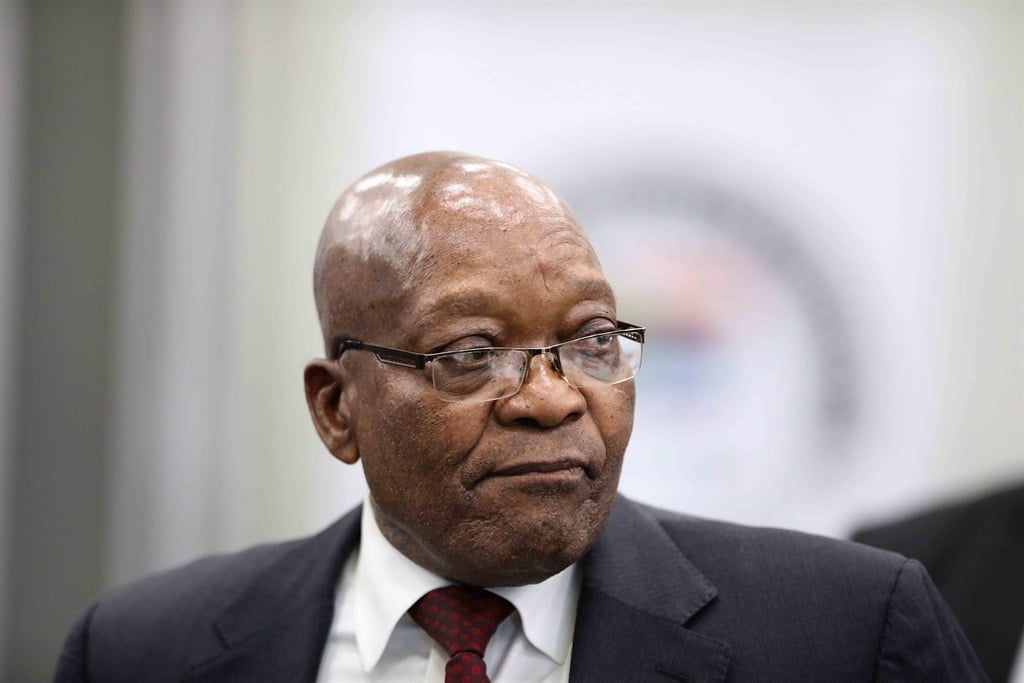
Zuma's attacks on the judiciary contained in his statement make it clear that his aversion to the court system is due to the series of legal defeats he has suffered in recent years, writes Pieter du Toit.
Former president Jacob Zuma launched a remarkable attack on the judiciary on Thursday night, saying "a judicial dictatorship" seems to be emerging and democratic gains will be "lost in the ashes" if people should rise up against the courts.
Zuma, who will soon be standing trial on charges of corruption and fraud, seemed to be threatening some form of insurrection in a rambling and incendiary statement of eight pages and 26 paragraphs released after 22:00 on Thursday.
READ THE STATEMENT HERE
This followed arguments presented in the Constitutional Court earlier in the day in which the judicial commission of inquiry into state capture asked the country's highest court to declare Zuma in contempt after he defied an order by the court to attend and testify at the commission. The commission wants Zuma sent to jail.
Besides referring to democratic gains "lost in the ashes" should people rise up, Zuma says not even the Constitutional Court will be spared "rigorous questions" when "our people… gain their voice".
Zuma, ensconced in his rural homestead in KwaZulu-Natal since he was ousted from the country's presidency in February 2018, has in recent times become the focal point for disgruntled ANC members and leaders, many of whom have made a public spectacle of visiting him at his home.
The ANC, under the leadership of President Cyril Ramaphosa, has also refused to censure him for his refusal to abide by the law and have been unable to prevent him from making damaging public statements. His latest missive presents a significant problem for Ramaphosa, who has in recent times attempted to force his party to abide by the law. Zuma's outburst could however be seen as a direct challenge to the constitutional state and will also lead to further tension in the governing party.
The former president has steadfastly refused requests, subpoenas and court orders to testify at the state capture commission. He maintains he will not appear at the commission as long as Deputy Chief Justice Raymond Zondo is the presiding officer, even though Zuma signed the commission's mandate when it was established under his presidency. Zuma also did not object to Zondo's appointment as chairperson of the commission and he didn't object when he made his first and only appearance on the witness stand in July 2019.
Using inflammatory and threatening language, Zuma says the conduct of the judiciary as he sees it can quite possibly lead to an uprising which can have serious consequences for democracy.
He says:
Zuma's attacks on the judiciary contained in his statement make it clear that his aversion to the court system is due to the series of legal defeats he has suffered in recent years. He repeatedly laments the cost orders against him and reserves his most stinging attacks for Zondo, the second most senior judge in the country, and another judge of the Constitutional Court, Justice Dhaya Pillay. The attacks contained in the statement are not supported by legal analysis or context.
Arguing that "all South Africans should be concerned about the dangerous situation we are heading towards", Zuma states that "the core principles of separation of powers between the judiciary, legislature and executive" are being weakened, without offering evidence or analysis to support this.
He goes on to say:
Zuma does not say which public sentiment, how widely spread it is and nor does he rely on scientific or legal analysis to support his statement.
The former ANC leader also seems to contradict himself in various paragraphs, declaring his disdain for the courts and saying he will not "subject myself to an oppressive and unjust court" but that he is equally not afraid of going to jail. He says there is no crisis as of yet, but that a crisis will be created should he refuse to comply with any sanction meted out by "a competent court and impartial forum".
"They can put my physical body behind prison doors; however, my spirit is free to speak against the injustice of the imprisonment. Our people – ordinary people – will gain their voice and when they do, not even the Constitutional Court will be spared the rigorous questions," Zuma says.
The ANC's national executive committee will meet this weekend to discuss various issues, including matters which will have a direct bearing on the future of Ace Magashule, the party's secretary-general, who is also facing charges of corruption and fraud.
